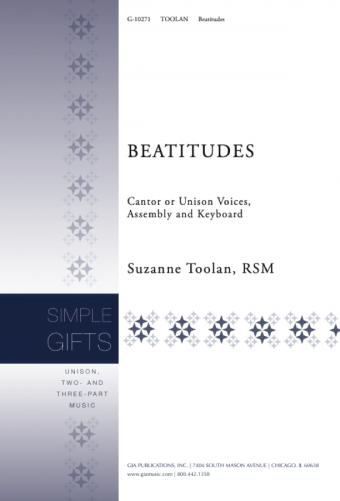Readings:
All Saints [667]
Revelation 7:2–4, 9–14
Psalm 24:1bc–2, 3–4ab, 5–6 (℟ see 6)
1 John 3:1–3
Matthew 5:1–12a
All Souls’ Day suggestions [668]
Wisdom 3:1–9
Psalm 23:1–3a, 3b–4, 5, 6 (℟ 1 or 4ab)
Romans 5:5–11 or 6:3–9
John 6:37–40
or any readings from nos. 1011–1016
[CONTENT WARNING: SEXUAL ABUSE] WHEN AN ABUSE SCANDAL HAPPENS IN WHICH THE ABUSER IS AN ARTIST—a filmmaker, painter, writer, or composer—there is often the question of what to do with that person’s work. Toss it or, as some say, separate the art from the artist?
Last year, many liturgical musicians and pastoral leaders had to struggle with that question when one of our own prolific composers was revealed to also be a serial abuser. When some parishes and entire dioceses decided to ban the public use of this person’s music, some argued, saying, “If we only sang music by saints, we wouldn’t have much to sing.”
Recognizing that this brief reflection can’t adequately address this issue, I will simply say that this argument is flawed. First, it underestimates music’s power to harm and divide as much as heal and unite. Second, and to the point of these feast days, it implies that saints were perfect people in their earthly lives. They were not. The Beatitudes never said, “Blessed are the perfect….” The saints were flawed—some even greatly—imperfect humans. They sinned, some a lot. What made them saints is that they changed and changed greatly.
We are all sinful people with the ability to create beautiful things. The saints, with the Spirit’s help, made of their imperfect lives something beautiful for God.
–Diana Macalintal
Suggested Music
Choral Suggestions:
MYSTAGOGY MOMENT:
“Blest, O blest indeed are you.”
In the notes for this piece, Sr. Suzanne discusses the two different ways the Beatitudes are presented in Scripture: one emphasizing groups “Blessed are the poor in spirit….” and one focusing on the individual “Blessed are you….” Sr. Suzanne has used the more individualized version in her setting of this text. How do we as individuals follow the Beatitudes in our daily lives? This version of the Beatitudes makes it very clear that we are the ones responsible for our actions and for following the teachings of Christ. The saints that we remember on these holy days followed the way of Christ and embodied these qualities in their daily lives in big ways and in small ways. Our departed brothers and sisters were examples of holiness for us in the love that they showed us in their lives and their intercession for us as they share eternal happiness with Christ. How can we make our lives mirror the lives of the saints and dearly departed we remember today? What needs to be changed in our lives to more closely align us with the teachings of the Beatitudes?
–Victoria Zibell
More choral suggestions for All Saints and All Souls…
For All the Saints Bob Moore SAB, piano, guitar G-8116
Give Rest, O Christ Russell Schulz-Widmar SATB, organ G-3819
Rejoice in God’s Saints James Biery SATB, organ G-8617
Requiem Russell Schulz-Widmar SATB, assembly, organ, flute, oboe, clarinet, horn, cello G-8214








